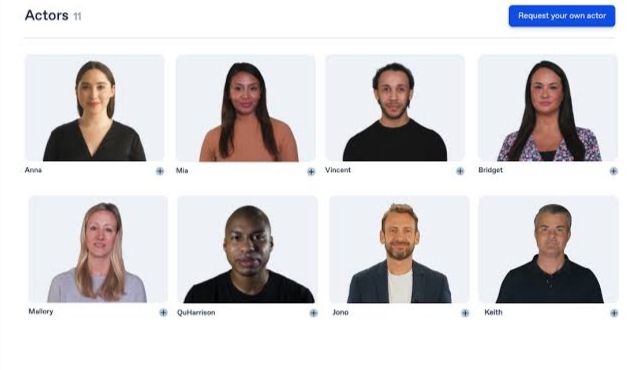Social media platforms have evolved over the years, providing users with new features and functionalities to enhance their experience. One such feature on Twitter is the introduction of "Threads," which allows users to string together a series of connected tweets to create longer narratives or discussions. While Threads have gained popularity and expanded the possibilities of communication on Twitter, some argue that they may have unintended consequences that could potentially harm the platform. This proposal explores the potential negative impacts Threads could have on Twitter and highlights the Twitter vs. Threads debate.
Twitter has long been a platform known for its brevity, limiting users to express their thoughts in 280 characters or less. However, with the introduction of Threads, a feature that allows users to string together multiple tweets into a cohesive narrative, some people are concerned about the potential negative impact it may have on Twitter. In this article, we will explore the topic of "How Threads will DESTROY Twitter ? Twitter vs Threads" and delve into the implications of this feature on the future of the platform.
How Threads Enhance Twitter Conversations
Before we dive into the potential drawbacks of Threads, let's first acknowledge the positive aspects it brings to Twitter conversations. Threads allow users to expand on their thoughts, providing more context and nuance to their tweets. By connecting related tweets, users can create a more comprehensive and coherent narrative, making it easier for others to follow along and engage in meaningful discussions.
Improved Storytelling with Threads
One of the significant advantages of Threads is its ability to enhance storytelling on Twitter. Previously, users had to resort to fragmented tweets or numbered series to convey a narrative. With Threads, users can seamlessly weave their tweets together, creating a more immersive storytelling experience. Whether it's recounting personal anecdotes or sharing educational content, Threads provide a platform for users to captivate their audience with a well-structured narrative.
Organized Discussions and Debates
Another benefit of Threads is the ability to organize discussions and debates on Twitter. By linking related tweets, users can present their arguments or counterarguments in a logical and structured manner. This feature not only facilitates more coherent conversations but also makes it easier for users to follow the flow of the discussion. Threads enable users to present their thoughts more effectively and encourage others to engage in meaningful debates.
The Potential Pitfalls of Threads
While Threads have undoubtedly added value to Twitter conversations, there are concerns regarding their potential negative impact on the platform. Let's explore some of these pitfalls and evaluate their significance.
Information Overload and TL;DR Culture
One of the primary concerns associated with Threads is the potential for information overload. As users string together multiple tweets, the length of the content increases, making it more challenging for readers to consume. This can lead to a "Too Long; Didn't Read" (TL;DR) culture, where users skip lengthy Threads due to time constraints or a lack of interest. If this trend becomes prevalent, it could result in a decline in user engagement and a fragmented Twitter experience.
Fragmented Conversations and Loss of Context
While Threads aim to provide more context, they can also lead to fragmented conversations and a loss of context. As users respond to specific tweets within a Thread, these responses might not be visible to others who join the conversation later. This fragmentation can hinder the overall flow of the discussion and make it difficult for users to understand the complete context. Additionally, as Threads expand over time, the initial tweets may get buried, further exacerbating the issue.
FAQs (Frequently Asked Questions)
Here are some common questions related to the topic "How Threads will DESTROY Twitter ? Twitter vs Threads" along with their answers:
Q: Are Threads mandatory on Twitter?
A: No, Threads are not mandatory on Twitter. Users can choose whether or not to utilize this feature based on their preferences and the nature of the content they want to share.
Q: Can Threads be edited after they are published?
A: Yes, Threads can be edited after they are published. Twitter allows users to make changes to their Threads by adding, deleting, or modifying individual tweets within the Thread.
Q: Will Threads replace traditional tweets?
A: No, Threads will not replace traditional tweets. While Threads offer a way to present longer-form content, traditional tweets still play a crucial role in conveying concise thoughts and engaging in real-time conversations.
Q: Can Threads be monetized?
A: Currently, Twitter does not provide direct monetization options for Threads. However, users can leverage Threads to engage their audience and drive traffic to monetized platforms such as websites, blogs, or other social media channels.
Q: Are there any character limits for Threads?
A: Threads do not have a specific character limit. However, each individual tweet within a Thread still needs to adhere to Twitter's 280-character limit.
Q: Do Threads affect Twitter's algorithm?
A: Threads do not significantly affect Twitter's algorithm. The platform's algorithm focuses on engagement metrics, relevance, and user preferences rather than the format of the content.
How Threads will DESTROY Twitter ? Twitter vs Threads
Despite the benefits Threads bring to Twitter, some critics argue that they have the potential to destroy the essence of the platform. Here are a few reasons why:
Loss of Conciseness: Twitter's unique selling point has always been its brevity. By allowing long Threads, Twitter risks losing its distinct identity and becoming just another platform for lengthy content.
Reduced User Engagement: Lengthy Threads may discourage users from engaging with the content, leading to a decline in retweets, likes, and replies. The fast-paced nature of Twitter might not be well-suited for lengthy narratives.
Information Overload: As mentioned earlier, lengthy Threads can overwhelm users with excessive information, leading to a decrease in attention spans and user interest. This could result in users spending less time on the platform or even abandoning it altogether.
Fragmented Conversations: Threads can lead to fragmented conversations, making it harder for users to follow and participate in discussions. This fragmentation can hinder the sense of community that Twitter fosters.
Conclusion
In conclusion, while Threads offer several advantages for storytelling and organized discussions on Twitter, there are valid concerns regarding their potential negative impact on the platform. The risk of information overload, loss of conciseness, and fragmented conversations should be carefully considered by both Twitter and its users. As the platform continues to evolve, finding the right balance between brevity and expanded narratives will be crucial for maintaining Twitter's unique appeal.







![You are given a tree of N nodes, rooted at 1. You are also given two arrays A and P, where the value of node U is given by A[U] and the parent of node U is given by P[U].](https://blogger.googleusercontent.com/img/b/R29vZ2xl/AVvXsEhTpF7Lra1VETER3Z5ALLUIjgIgMfUkS83xaaJWF8KpE6F-Nk3QV7Obo84o5oZ1_e3fueezIoqRjtjQdGCqi76966_xLVncEBNztPY0Cx3D2UhpqtUa4O4UOHIWai03Aqsv5io479qO6og/w680/nth.png)







0 Comments